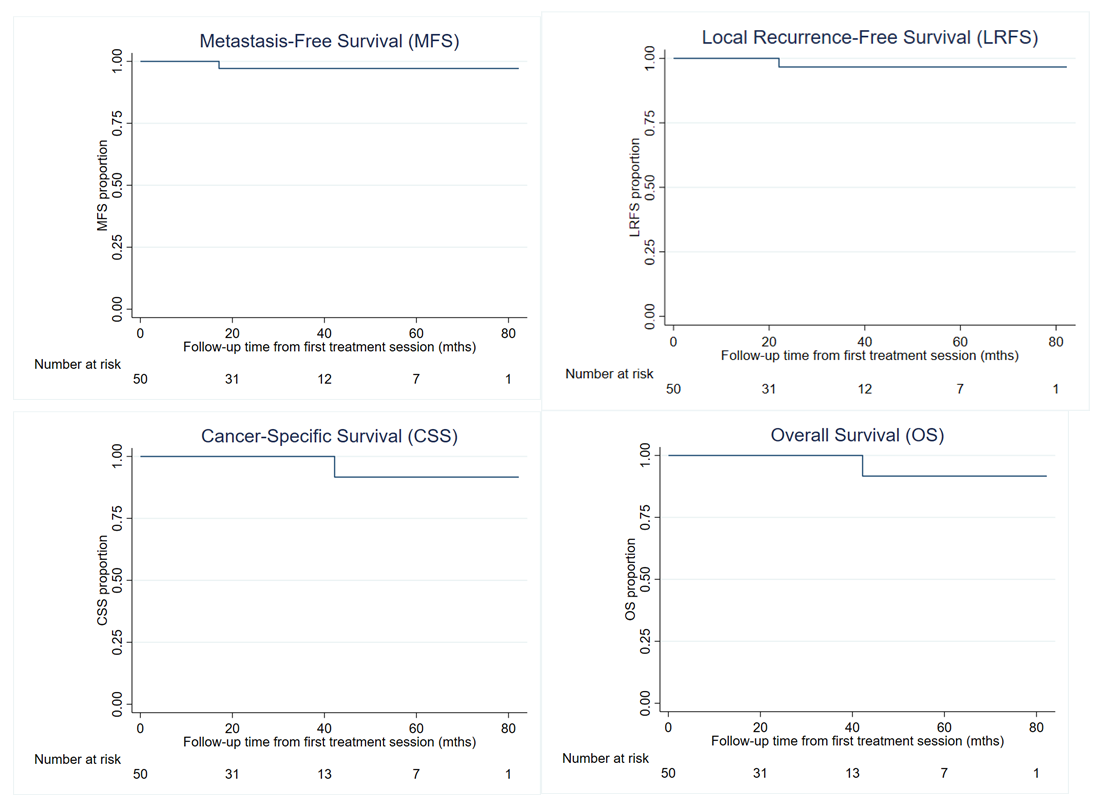Treatment of inherited renal cell carcinomas (RCC) must balance oncological outcomes and renal function. This study aims to evaluate the safety, efficacy and renal function preservation of percutaneous cryoablation (PCA) for small renal masses (SRMs) in inherited RCC syndromes.
Patients with inherited RCC syndromes with T1N0M0 RCCs (<7cm) undergoing PCA from 2015 to 2021 were identified from the European Registry for Renal Cryoablation (EuRECA). Primary outcome is local-recurrence-free survival (LRFS). Secondary outcomes include technical success, other oncological outcomes and peri-operative outcomes. Oncological outcomes were estimated using the Kaplan-Meier method. Simple proportions, chi-squares and t-tests were used to analyse peri-operative outcomes.
68 sessions of PCA were performed at 11 European Centres in 53 patients with RCC (41 VHL, 1 HLRCC, 2 HRPC, 9 BHD) and 85 tumours were followed-up for a mean duration of 30.4 months (SD ± 22.0). Overall technical success rate was 99%. No intra-operative complications were noted. Major post-operative complication rate was 1.7% (1/58). 7.4% (2/27) of patients had >25% reduction in renal function (Fig 1).

All oncological events were observed in VHL patients. Estimated 5-year LRFS, metastasis-free survival, cancer-specific survival, and overall survival are 96.0% (95% CI 75%- 99%), 96.4% (95% CI 77% – 99%), 90.9% (95% CI 51% – 99%) and 90.9% (95% CI 51% – 99%) respectively (Fig 2).

This study was limited by low statistical power, as hereditary RCCs are rare.
PCA of RCCs for patients with hereditary RCC SRMs appears to be safe and offers low complication rates, good renal function preservation and oncological outcomes.